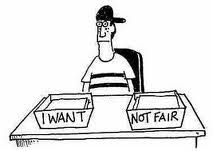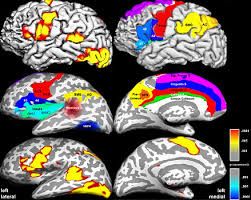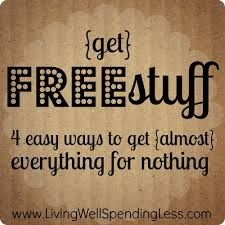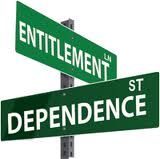Hi ,

Over and over I hear a common complaint from patients regarding entitlement behaviors by their kids, relatives, or people in general. Politically this is becoming a hot topic that is seriously dividing the nation as the producers and the consumers in society build increasing resentments with each other. Historically this divide has toppled most civilizations of the past in a very predictable cycle. However, I find most people have no idea what starts this cycle of resentment and separation, much less how to stop it.
Unfortunately, once a feeling of entitlement has been established, it is extremely hard to eliminate. It seems to hook into some very deep and basic survival programs buried in the brain. It is not simply a conscious choice that a person can easily choose to step out of. Yes we all have conscious will with which to make choices of our actions, but outside our control is how we re-actively feel about circumstances and situations.

Many years ago the prevailing belief in psychology was that feelings followed thought. Therefore if you could control your thoughts, then you could also control your feelings. This belief was completely false. Modern technology now allows us to follow brain processes in real time very precisely and we now know that feelings happen before thoughts. This is part of the reason that most psychology methods have such a hard time making any lasting difference with patients – they are typically thought and language based.
So let’s examine the development process of entitlement.

If you were a hunter-gatherer foraging for food and you bumped into an apple tree full of ripe delicious apples causing an apple to drop at your feet, you would be delighted and grateful. The universe has just provided you with a gift that supports your survival. If you bump the tree again and another apple falls down, your delight and gratitude shifts a bit towards excitement. You are not really hungry anymore because you ate the first apple. Your need in the moment has been satisfied. But the second apple awakens your future-planning mind and it gets excited about anything it can do to secure its needs in the future. You bump the tree a couple more times and a couple more apples fall down. Now you are really excited because you have gone into hope that you have found the answer to your future hunger needs. You gather up as many apples as you can carry and rush off to your cave to save them for later, happy as can be. What is actually making you happy is that you have created an anticipation of reward based on a cause-effect relationship – bumping the tree equals apples to eat.
If you go back to the tree a couple days later and bump it some more and get more apples, your anticipation turns into an expectation based on the belief that bumping produces apples, because that is what you have experienced. This expectation of a reward is the basis of entitlement.

As human beings we are always trying to survive. It is the core motivator behind so many of our actions. More specifically what we are seeking is what science types call homeostasis – an internal feeling that everything is working all right and all our needs are met. Now here is the key piece to this puzzle – survival requires a lot of effort, and the more economical we can be with our effort, the greater our chances are at surviving. Put simply, the less we have to do to get what we need to survive, the more of a winner we are at the survival game. So someone who accidentally bumps into a tree and gets dinner dropped in his lap is a much bigger winner than someone who has to work all day gathering tiny seeds to make a meal. Guess which one has more time to chase the opposite sex and reproduce?
The drive to get as much as you can while giving up as little of your own effort as possible directly equates to a survival advantage and a reproduction advantage. It is in our genes. This drive is the root of most of human progress – this and the desire to kill your enemies with less risk. War and the economy of effort build civilizations. The move from hunter-gatherer to farmer was just such a move. It was much more efficient as it took less effort to plant crops close to home than it took to wander the countryside in hopes of getting lucky and finding something to eat.

I hope I am getting across just how deeply the drive to get more reward for less effort is ingrained in the brain. That means we are wired to look for anything in our environment that offers us reward with little effort. And we get super attached to any circumstance that seems to offer this to us. Part of this is the assumption on our part that it was our actions that caused the resultant reward. We own the outcome because we believe that we are the sole creators of the outcome. We do not consider the myriad of other causes and effects that went into the outcome we enjoyed. For instance, the hunter-gatherer won’t stop to consider that the reason the apple dropped into his lap is because he accidentally happened to find the tree during the exact week in the year that its fruit was perfectly ripe. It does not occur to him that in a few weeks all the apples will be gone for the year.

So what do you imagine happens inside someone’s brain when you give them something for nothing? It lights up like a Christmas tree – fireworks go off as they feel they have hit the survival jackpot. For the first gift they may feel grateful, but if the gifting is repeated, within a very short period of time their brains have moved into expectation and feeling entitled to get this gifting for free. After all, they are doing the exact same things they were when they got the first few gifts. They figure they are presenting in the same way so the world should likewise continue to present in the same way. This is the way our brain wants to believe things work – if you keep doing the same things, you should keep getting the same results. Life seems to support this as this is the way that things work most of the time. The confusion is when you don’t really know what you did to get the reward or you did nothing. You still think the reward was all about you – you must have gotten it because you deserve it in some way. Your head will start making up stories to explain why you deserve to keep getting the reward, even when the truth is that what you got had nothing to do with you. You were just the recipient in someone else’s story.

Entitlement is the direct byproduct of giving people stuff they want without requiring an equal exchange of effort for what they receive. This distortion of natural balance and the laws of cause and effect begins at an early age. It begins with giving in to the two year old in the grocery cart insisting they must have that particular candy or cereal or toy as you are shopping and gets reinforced with our shopping insanity at Christmas and birthdays. We are taught to believe in the ability to get something for nothing by our parents not understanding the consequences of their well-meaning actions. And this is where the change has to take place to bring balance back into our society.
It is never ever a parent’s job to give a child what they want. It is a parent’s job to provide for the child what they perceive to be the child’s needs until the child is able to provide for their own needs. It is the parent’s job to teach the children how to meet their own needs and set them free to personalize their learning through trial and error. Wants are motivation for self-creation development. Children need to achieve their own wants through their own effort and creativity.

Nothing crushes the human spirit to achieve more than the expectation that personal effort is not needed to get what you want in life. Getting something for nothing enslaves you to your providers. You have no reason to grow up or to develop the skills of becoming a fully functional human being. Your survival brain is too busy telling you not to rock the boat and to keep doing and being the same to ensure you keep getting the survival support you think you need. Don’t fulfill your amazing potential – it might not get you taken care of.
Is survival for free really worth your soul? If not, then how would you choose to relate to the world full of people who are willing to make that trade? Do you support the “something for nothing” consciousness, or might you perhaps want to give people the dignity of even and fair exchange for what they receive?
Take care,
